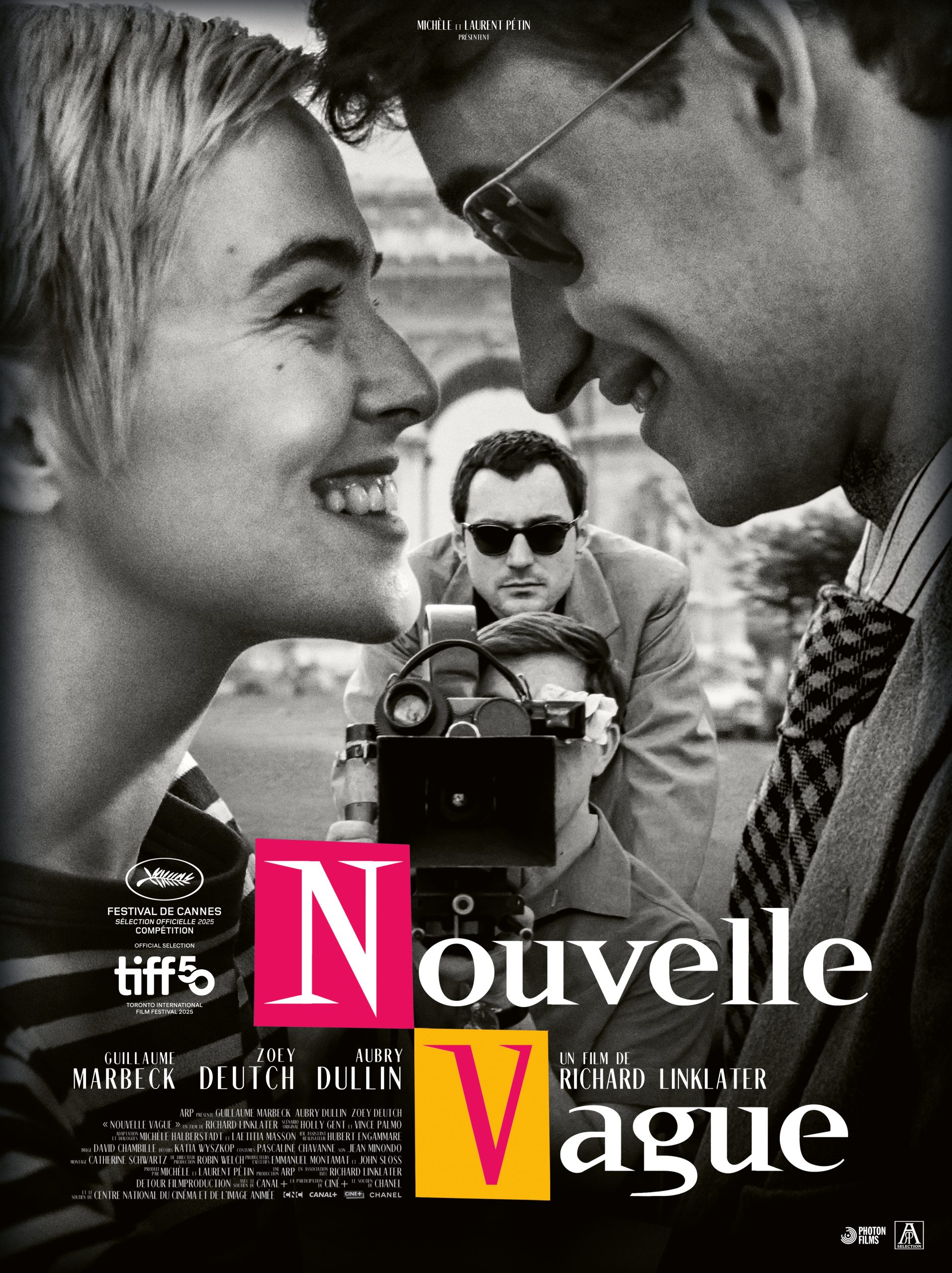
- Starring
- Guillaume Marbeck, Zoey Deutch, Adrien Rouyard, Aubry Dullin
- Writers
- Holly Gent, Vincent Palmo Jr., Michèle Halberstadt, Laetitia Masson
- Director
- Richard Linklater
- Rating
- R (United States)
- Running Time
- 106 minutes
- Release Date (CAN)
- October 31st, 2025
- Release Date (US)
- October 31st, 2025 (limited)
- Release Date (US)
- November 14th, 2025 (Netflix)
Overall Score
Rating Summary
This will be one of many reviews during this year’s Toronto International Film Festival, to keep up with our latest coverage, click here.
Richard Linklater complements Blue Moon with another reflection of a brilliantly complex artist, Jean-Luc Godard, and his impact on cinema history. Attempting a stylized homage to the early French New Wave, Nouvelle Vague follows Godard’s (Marbeck) first foray into a feature-length film following his journalistic work for Cahiers du Cinéma and his filmmaking practice with short films. Asking colleague François Truffaut (Rouyard) for help on the script treatment, Godard gathers funding and reluctant actors to birth his first film Breathless (Original French Title: À bout de souffle).
Godard’s unorthodox filmmaking visions on Breathless are undoubtedly ingenious as they are bewildering and frustrating for his cast and crew, elevated by an immensely unpredictable shooting schedule. Acting newcomer, Marbeck fully invests in Linklater’s particular portrait of Godard, through the analogies and reserved demeanor hidden behind his shaded glasses. While a compelling instance of Godard’s career shift, Linklater breezes through much of this landmark change just as frenetically as he introduces other important figures in the film movement.
Through his initial encounters with actors Jean-Paul Belmondo (Dullin) and Jean Seberg (Deutch), they are where Godard’s passion is distinguished, convincing his skeptics with the full confidence of an established auteur who knows precisely what he wants. This intrigue into Godard’s motivations, however, quickly dissipates as Nouvelle Vague bounces between ineffectual vignettes of the film’s production, showcasing Godard’s revolutionary in monotonous fashion. Linklater’s love for cinema is inherently present throughout his technical homages, with the monochromatic imaging, tightened aspect ratio, and discernable film grain to emulate the amateur style of this masterful era. Yet his effectiveness to enrich his provided script is curbed by the inability to elaborate on Godard’s urge to create, outside of pure desire.
Overall, Linklater squanders the effort to provide riveting depth to Jean-Luc Godard or the French New Wave movement as a whole. Falling into the same conventions that the movement would criticize, Nouvelle Vague is a risk-averse representation of a movement known for taking daring risks. Instead of reflecting on an impassive depiction, the film is much more endearing for audiences to discover this important era of cinema on their own.
still courtesy of Photon Films
If you liked this, please read our other reviews here and don’t forget to follow us on Twitter or Instagram or like us on Facebook.
Discover more from
Subscribe to get the latest posts sent to your email.

